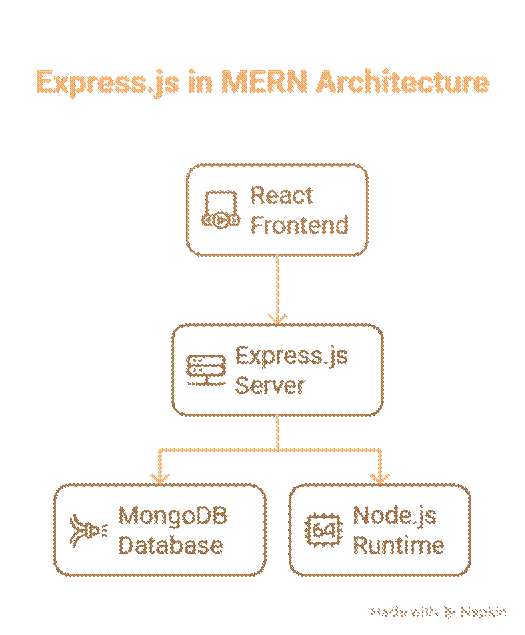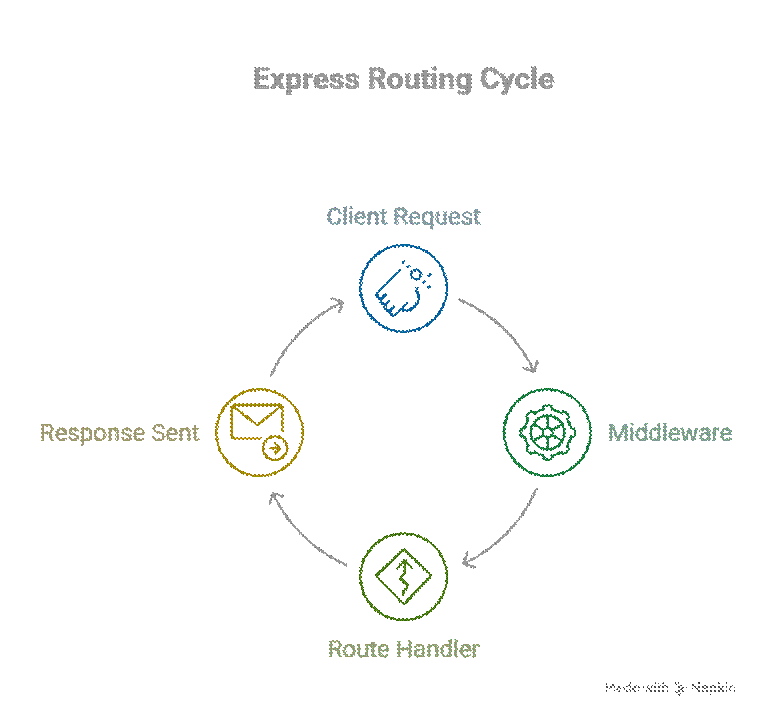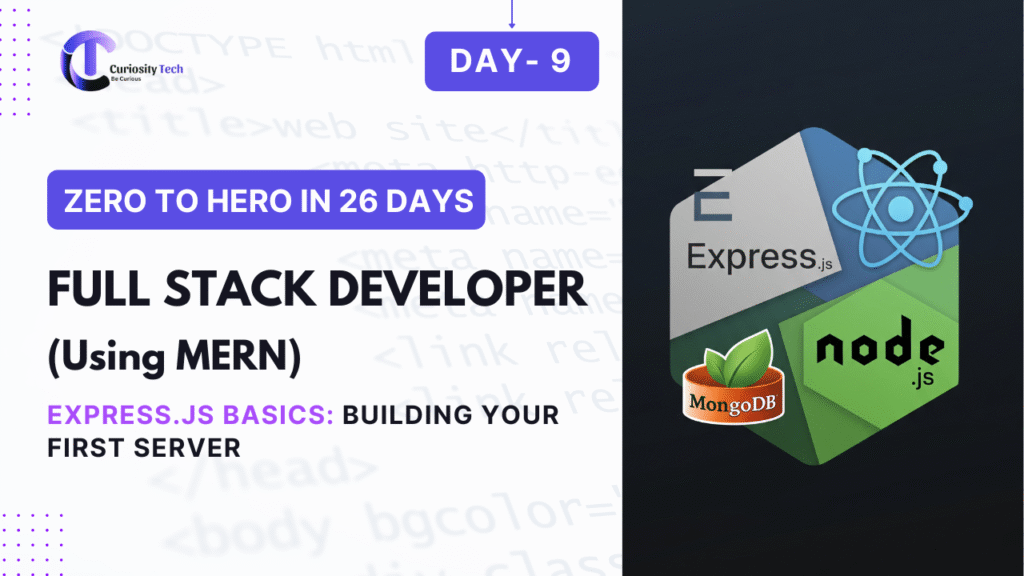Introduction
Express.js is a minimalist and flexible Node.js framework that simplifies backend development in MERN applications. While Node.js provides the runtime environment, Express streamlines routing, middleware, and HTTP request handling, allowing developers to focus on building scalable and maintainable APIs.
For MERN Stack developers, mastering Express is critical, as it bridges React frontend and MongoDB backend, enabling seamless communication. CuriosityTech.in emphasizes practical Express.js applications in MERN projects, ensuring learners grasp both fundamentals and advanced concepts.
Why Use Express.js?
Node.js alone is powerful but requires verbose code for routing and middleware. Express.js provides:
- Simplified routing
- Middleware integration for request processing
- Easy JSON handling for APIs
- Compatibility with databases like MongoDB
Diagram – Express in MERN Architecture:

This demonstrates Express as the central bridge between frontend UI and backend data storage.
Setting Up Your First Express Server
- Install Express:
npm install express
- Create Server File:
// server.js
const express = require(‘express’);
const app = express();
const PORT = 5000;
// Middleware to parse JSON
app.use(express.json());
// Basic route
app.get(‘/’, (req, res) => {
res.send(‘Welcome to My First Express Server!’);
});
// Start server
app.listen(PORT, () => {
console.log(`Server running on http://localhost:${PORT}`);
});
- Run the Server:
node server.js
Access in browser: http://localhost:5000
Understanding Middleware
Middleware are functions that run before your routes to process requests, responses, or handle errors.
Example – Logging Middleware:
app.use((req, res, next) => {
console.log(`${req.method} request for ${req.url}`);
next(); // Continue to next middleware or route
});
Table – Common Middleware Types:
| Middleware Type | Purpose | Example Use Case |
| Application-level | Applies to all routes | Logging, authentication |
| Router-level | Specific to a router | Route-specific validation |
| Error-handling | Catch and handle errors | Return structured error messages |
| Built-in | Express built-in parsers | express.json(), express.static() |
| Third-party | External libraries | cors, body-parser |
Routing in Express
Routing is how Express handles different HTTP requests at different endpoints.
- GET Route: Fetch data
app.get(‘/users’, (req, res) => {
res.json([{ id: 1, name: ‘Alice’ }]);
});
- POST Route: Receive data
app.post(‘/users’, (req, res) => {
const user = req.body;
res.json({ message: ‘User created’, user });
});
- Dynamic Route: Use parameters
app.get(‘/users/:id’, (req, res) => {
const id = req.params.id;
res.json({ message: `User ID: ${id}` });
});
Diagram – Express Routing Flow:

Best Practices for Express.js
- Organize Routes: Use separate route files for modularity.
- Use Middleware Wisely: Apply global middleware for authentication, logging, or CORS.
- Error Handling: Use centralized error-handling middleware to return consistent responses.
- Environment Variables: Store sensitive data (like DB credentials) in .env files.
- Async/Await: Always use async functions with try-catch for database operations.
Becoming an Express Expert
- Understand HTTP Methods: GET, POST, PUT, DELETE for CRUD operations.
- Learn REST API Principles: Resource-based routing for backend APIs.
- Integrate with MongoDB: Connect Express routes to database queries using Mongoose.
- Implement Authentication: JWT-based login and protected routes.
- Build Real Projects: Blog apps, e-commerce backends, and social media APIs.
CuriosityTech.in offers hands-on MERN projects where learners build complete Express servers connected to React frontends and MongoDB backends, bridging theory with production-level development.
Conclusion
Express.js is an indispensable part of the MERN stack, simplifying backend development and enabling smooth integration between React and MongoDB. By mastering middleware, routing, and REST API principles, developers can create scalable, maintainable, and high-performance MERN applications. Practicing with real-world projects, like those at CuriosityTech.in, ensures learners gain expertise in building production-ready servers confidently.



